
Hannah Tyler Wilcox (August 31, 1838-Nov. 22, 1909) was an American physician.

Hannah Tyler Wilcox (August 31, 1838-Nov. 22, 1909) was an American physician.
Hannah Tyler was born in Boonville, New York, on August 31, 1838. Her father, Amos Tyler, was a cousin of President John Tyler. His liberal ideas on the subject of woman's education were far in advance of his generation. Her mother's father, Joseph Lawton, was a patron of education and one of the founders of the first medical college in New York, in Fairfield, Herkimer County. His home and purse were open to the students and professors, and thus Elizabeth Lawton learned to love the science of medicine, though not permitted to study it. [1]
Hannah Tyler attended the academies in Holland Patent, New York, and Rome, New York, and, being desirous of a higher education than could there be obtained, she went to the Pennsylvania Female College, near Philadelphia, where she was graduated with honors in 1860. [1]
A call came to the president of the college for a teacher to take charge of an academy in southwest Missouri. This involved a journey 300 miles by stage coach south of St. Louis, Missouri. Tyler resolved to accept the position, and in one year she built up a successful school, when the civil war made it unsafe for a teacher of northern views to remain, and she returned to her native town. [1]
She entered into the medical profession with her husband and studied in the various schools, the allopathic, eclectic, and later, desiring to know if there was any best in "pathies" of medicine, she took a degree in the homeopathic school in St. Louis, where she resided many years. She was a believer in the curative powers of electricity, and many of her cures were on record, with the skillful use of various means of healing the sick. [1] She encouraged her colleagues to investigate the physiological and psychological benefits of oxytocic electricity to obviate the need for drugs and forceps during delivery and prevent postpartum hemorrhage. [2]
Her great aim was the advancement of her sex. She was prominent in all the great movements of and for women, the Woman's Christian Temperance Union, the Woman's Relief Corps and the educational and industrial unions. She was a member of the National American Institute of Homoeopathy, and was a delegate from St. Louis and Missouri to the convention in Saratoga Springs, New York, in 1887. She was medical examiner for ten years for the Order of Chosen Friends. [1]
Her lectures on health and dress for women aided materially in reform. [1]
In 1862, Hannah Tyler married Dr M. W. Wilcox, of Rochester, New York. They went to Warrensburg, Missouri, and there witnessed some of the stirring scenes of that period of national strife. Three times they witnessed the alternation of Federal and Confederate rule. [1]
In 1887, her health failed from overwork, and she sought the invigorating climate of southern California, in Los Angeles. When her health was restored, she returned to her home in St. Louis. [1]
She was a widow for many years and had one living son. In 1892, she moved to Chicago, Illinois. [1]
She died at her home in St. Louis on November 22, 1909 at the age of 71. [3]

James Tyler Kent (1849–1916) was an American physician best remembered as a forefather of modern homeopathy. In 1897 Kent published a massive guidebook on human physical and mental disease symptoms and their associated homeopathic preparations entitled Repertory of the Homeopathic Materia Medica, which has been translated into a number of languages. It has been the blueprint to many modern repertories used throughout the world and even remains in use by some homeopathic practitioners today.
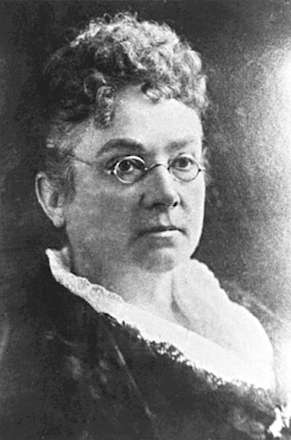
Emily Howard Stowe was a Canadian physician who was the first female physician to practise in Canada, the second licensed female physician in Canada and an activist for women's rights and suffrage. Stowe helped found the women's suffrage movement in Canada and campaigned for the country's first medical college for women.

Morris Fishbein was an American physician and editor of the Journal of the American Medical Association (JAMA) from 1924 to 1950.

Elizabeth Blackwell was a British and American physician, notable as the first woman to earn a medical degree in the United States, and the first woman on the Medical Register of the General Medical Council for the United Kingdom. Blackwell played an important role in both the United States and the United Kingdom as a social reformer, and was a pioneer in promoting education for women in medicine. Her contributions remain celebrated with the Elizabeth Blackwell Medal, awarded annually to a woman who has made a significant contribution to the promotion of women in medicine.

Ethel Hedgeman Lyle was a Founder of the Alpha Kappa Alpha Sorority (ΑΚΑ) at Howard University in 1908. It was the first sorority founded by African-American college women. Lyle is often referred to as the "Guiding Light" for the organization.
The Woman's Medical College of St. Louis was a homeopathic medical college for women located in St. Louis, Missouri. It opened first opened in 1883 as a branch of the Western Homeopathic Medical College, and then later reopened as a separate entity in 1891.
Catherine D. DeAngelis is the first woman and the first pediatrician to become editor of the Journal of the American Medical Association (JAMA). She has also edited several additional medical journals. Before assuming the editor's position at JAMA in 2000, DeAngelis was a professor and Vice Dean of Faculty at the Johns Hopkins School of Medicine.
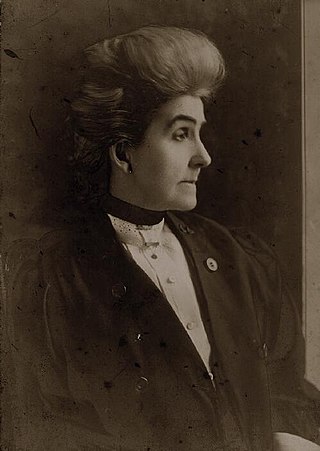
Phoebe Wilson Couzins was one of the first female lawyers in the United States. She was the second woman to serve as a licensed attorney in Missouri and the third or fourth to be a licensed attorney in the United States. She was the first woman admitted to the Missouri and Utah bars, and was also admitted to the Kansas and Dakota Territory bars. She was the first female appointed to the U.S. Marshal service. After her career in law, she played an active part in the Suffrage movement.
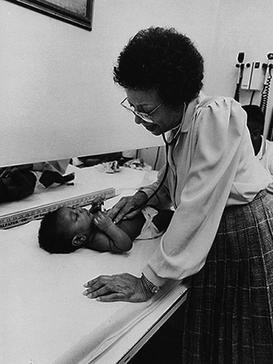
Helen Elizabeth Nash was a pediatrician known for breaking racial and gender barriers in the medical field. She began her career at the Homer G. Phillips Hospital, and later worked at the Saint Louis Children’s Hospital. She started her own private practice and was a faculty member at the Washington University School of Medicine. Her earliest work included decreasing infant mortality in Homer G. Phillips Hospital. Her private practice was notable for educating teens on proper sexual health. Additionally, she was one of the first medical doctors to address patient health as care for the patient and their support systems.

Clemence Sophia Harned Lozier was an American physician who founded the New York Medical College and Hospital for Women. Dr. Lozier was also a noted feminist and activist, and served as president of the New York City Suffrage League and the National Women's Suffrage Association.

Mary Hancock McLean was a physician and missionary. Born to Elijah McLean, a physician, and Mary Stafford, she enjoyed a privileged childhood with academic opportunities uncommon for girls of her time period. After graduating from the University of Michigan Medical School, she became the first woman to hold an official position at the St. Louis Female Hospital and the first woman admitted to the St. Louis Medical Society.
Mercy Ruggles Bisbee Jackson, M.D. was an American physician. She was one of the first women to earn a Doctor of Medicine degree, specifically in obstetrics and gynecology.

Hannah Amelia Wright (1836–1924) was an American physician, and the first female doctor to be appointed as an examiner in a state asylum.
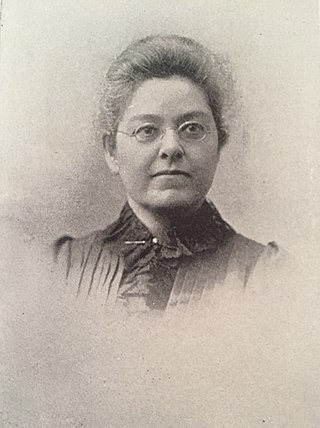
Ida Josephine "Joe" Brooks was an educator, physician and surgeon. She was among Arkansas's earliest women physicians and the first female faculty member at the University of Arkansas Medical School.

Phoebe Jane Babcock Wait was an American physician.
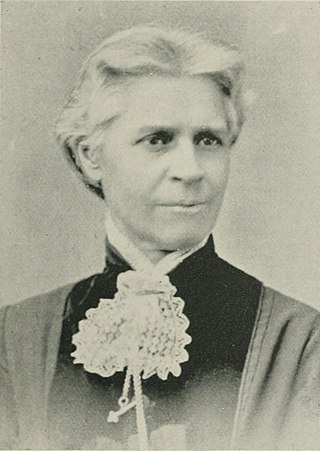
Susanna Way Dodds was an American physician, hydrotherapist and natural hygiene proponent.

Luella Wilcox St. Clair Moss was an American educator and suffragist. She was one of the first female college presidents in the United States.

Lynne Lamberg is an American freelance medical journalist, writer and editor. In addition to books on sleep, dreams, and biological rhythms, she has written hundreds of articles on mental and physical health for medical professionals and the general public.

Rosa Kershaw Walker was an American author, journalist, and newspaper editor of the long nineteenth century. She was one of the best-known literary women in St. Louis, Missouri, and a pioneer woman journalist of that city.

Cleora Augusta Stevens Seaman was an American physician based in Cleveland, Ohio.
{{cite book}}: CS1 maint: multiple names: authors list (link) CS1 maint: numeric names: authors list (link)